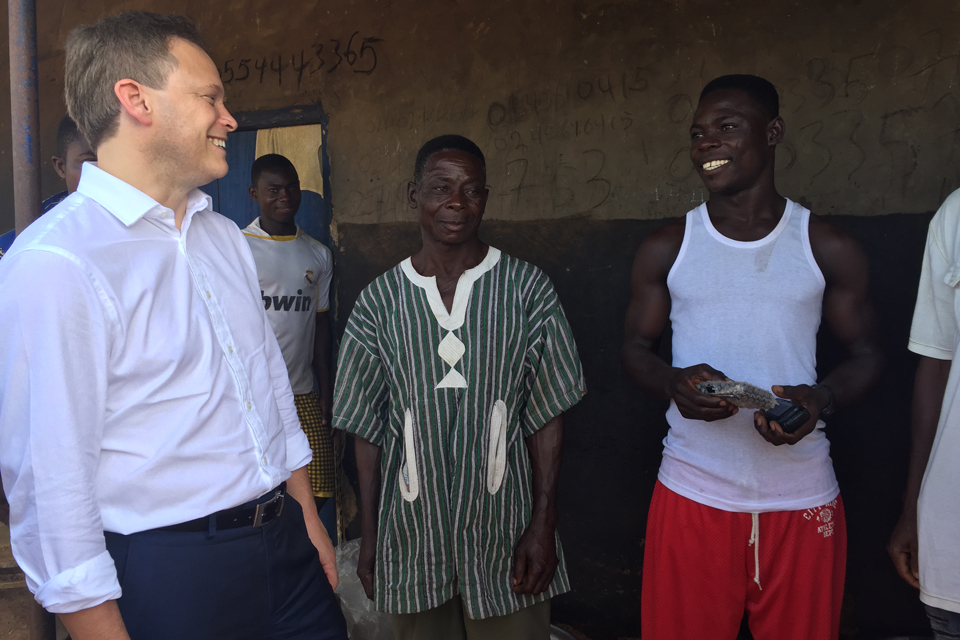
UK Minister of State for International Development, Grant Shapps, has told Ghanaians it is time to kick-start a solar power revolution in the African country.
Shapps was during his visit Ghana this week to spearhead the next phase of the UK’s new Energy Africa campaign.
Ghanaians pay much more for their electricity – to charge their phone, for example – than someone in the UK will pay. Meanwhile power outages cost African countries 1-2% of their annual GDP, stifling economic growth.
While electricity access in Ghana is better than much of Sub-Saharan Africa, the country still suffers regular power cuts and outages that affect households and industry. Solar technology and mobile payment systems exist in Ghana, yet less than 1% of households use solar energy.
Shapps said: “The time to invest in a solar revolution in Ghana is now. The price of solar photovoltaic panels has plummeted in recent years, battery technology has radically improved and electrical appliances have become more energy efficient.
“Added to this, the spread of mobile payment systems means people can pay for electricity on a micro pay-as-you-go basis, for less than they already spend on kerosene. This in turn means a market can be converted to deliver large scale off-grid domestic solar power.”
“And the time to act is now. On current projections, universal access to energy will not be achieved until 2080, and we know the grid will only ever provide 40% of Africa’s energy needs. So we have to look elsewhere too.”
During his visit the Minister will discuss Ghana’s involvement in the initiative with Minister of Power Honourable Dr Kwabena Donkoh, and highlight opportunities for solar and other off-grid solutions, such as clean cookstoves, to provide energy to many more people across Ghana and wider Africa.
Launched in London last month with prominent Ghanaian and former UN Secretary General, Kofi Annan, the Energy Africa campaign will speed up access to household solar energy and lighting for people across Ghana and wider Africa.
Shapps said, “Without a reliable energy supply at home people simply cannot go about their daily lives. Children cannot do their homework after dark, men and women are unable to charge their mobile phones, and families are forced to inhale the toxic fumes of kerosene lamps.”
“I look forward to working with the people of Ghana to spread solar energy right across the country, and hope the rest of Africa follows their lead in supporting the life-changing Energy Africa campaign.”
At the current rate, Africa will not achieve universal energy access until 2080 – 200 years after Thomas Edison invented the lightbulb.